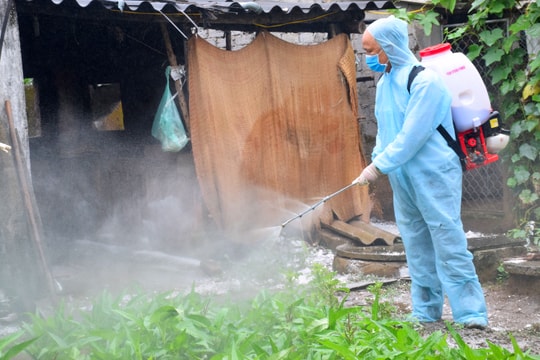56 people in Taiwan died from H1N1 flu
At least 56 people in Taiwan have died from respiratory failure caused by avian influenza (H1N1) in the past three months, but no one has died from the coronavirus.
H1N1 has been the dominant virus during the flu season in Taiwan over the past three months, with 771 cases of H1N1 infection with serious complications recorded since October 1, including 56 deaths, officials from the Taiwan Centers for Disease Control (CDC) said yesterday.
The CDC stopped releasing flu death tolls last week, but local media reported at least 13 more deaths. They ranged in age from 47 to 97, including an 80-year-old woman who had been running a high fever since late December.
|
Taiwanese people wear masks to prevent the epidemic when leaving the ship in Taipei on January 30. Photo:AFP |
The woman had received a flu vaccine before she contracted the disease, said CDC doctor Lin Yung-ching. The other patients who died from complications from pneumonia and respiratory problems were not vaccinated.
41% of severe cases were patients over 65 years old. Lin said that 98% of H1N1 patients had not been vaccinated against the flu and nearly 80% had chronic diseases, and called on people to get vaccinated to better protect themselves.
The seasonal flu poses a greater threat to Taiwan than the novel coronavirus (nCoV) that has caused a pneumonia outbreak in mainland China since December 2019. Taiwan currently has 10 cases of nCoV infection, but no deaths.
China also discovered an outbreak of H5N1 bird flu on a farm in Shaoyang city, Hunan province, on February 2, killing 4,500 chickens. H5N1 is a highly contagious flu virus, some strains of which can be transmitted to humans. Shaoyang authorities have taken necessary measures to control the epidemic, including culling 17,828 poultry./.



